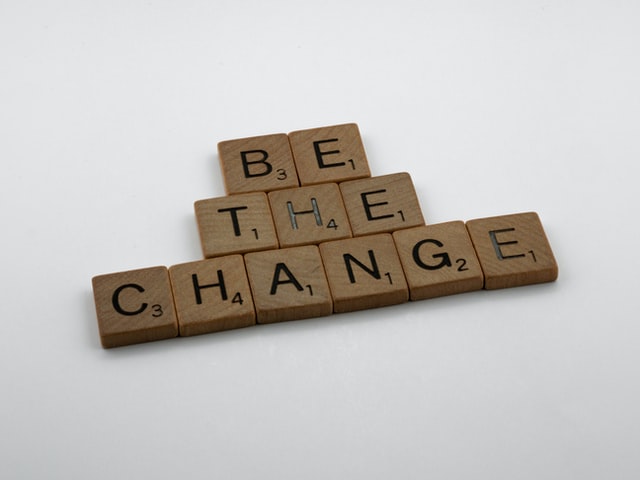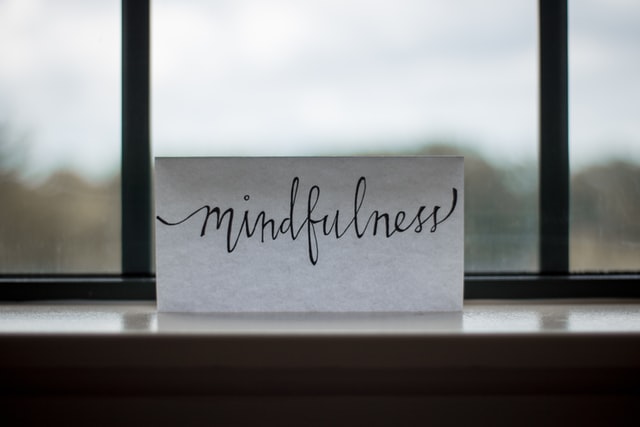
Karen Bradley
Counsellor - Psychotherapist
Which one is the best for me? What are their differences?

The words Counselling and Psychotherapy are used interchangeably a lot and it can be confusing if you are seeking help or support for your mental health. Many therapists will describe themselves as a Counsellor and Psychotherapist as opposed to one or the other. Essentially, they are both talk therapies that offer emotional and mental support to someone experiencing distress or personal issues.
There is still some debate on what constitutes either one. At present, neither term, ‘Counsellor’ nor ‘Psychotherapist’ are protected in Ireland. In 2019 the Irish Government decided to legislate for both terms, meaning that they will be clearly defined so that we can move towards licensed therapists who are registered within the CORU framework. Debate is still ongoing as to the levels of education, experience and training needed to reach the requirements of being a counsellor or psychotherapist.

What does it take to become an Accredited Counsellor or Psychotherapist?
Professional accrediting bodies such as IACP (counsellors and psychotherapists) or IAHIP (psychotherapists) accept pre-accredited therapist members after completing varying levels of qualifications. The minimum requirement can be a QQI level 7 Ordinary Degree or can be up to a QQI level 9 Post-Graduate Diploma or Masters. On qualification, the therapist is then required to complete up to 350 hours working with clients before they can begin the process of full accreditation. It is also a requirement of accrediting bodies that the therapist complete a number of hours as a client themselves, for IAHIP this is a minimum of 250 hours.
Here is a brief guide as to what you might expect from Counselling and Psychotherapy.

What does Counselling involve?
Counselling offers a confidential, supportive space for clients to discuss any problems or concerns that they are struggling with. As you open up about a particular issue, your counsellor will assist you in finding your own solutions or ways to cope with what is going on.
Counselling tends to work with the presenting concern and provides immediate support with that issue. For example, someone may be having relationship difficulties and find themselves feeling undervalued. In counselling, they are supported in finding their own voice and learn how to value themselves so that they can decide whether the relationship is right for them.
What does Psychotherapy look at?
Psychotherapy often goes deeper into the past, exploring things like family dynamics or past traumas so that we can better understand ourselves in the present. This option may be for someone who wishes to understand more deeply any destructive patterns in their lives.
Taking the same example as before, a client who is unhappy within their relationship may recognise a repeating pattern of unhealthy or unsupportive relationships. Psychotherapy can help to identify the origin of this pattern, exploring how past experiences influence the choices we make today. Psychotherapy would support the person to explore, engage and empathise with the past hurtful relationship so that they can connect with a different relationship pattern that nurtures them. We cannot change the past but we can change our perception of it and how it might affect us today.

Very often we may have behaviours or thoughts that are not serving us well, but they are so subconscious that we do not know where they come from. Psychotherapy looks to source the root cause of our core values and beliefs and to understand how they are impacting us. When we know why we do certain things, it becomes easier to change.
It can take longer to identify, engage with, and heal the underlying causes of our present distress. However, there is no defined timeline for counselling or psychotherapy as everybody has their own unique therapeutic journey.
An integral part of both counselling and psychotherapy is the therapeutic relationship. This is based on mutual respect, trust, and a safe space to uncover parts of the self. If we do not trust our therapist and if we do not feel safe or respected, it creates a block to a successful therapeutic outcome. The significance of the therapeutic relationship is why we, at Peace Inside, have the quality of our relationships at the core of everything we do.
An integral part of both counselling and psychotherapy is the therapeutic relationship. It is based on mutual respect, trust and a safe space to uncover parts of self. If we do not trust our therapist and we do not feel safe or respected, it creates a block to succesful therapeutic outcome.
What are the different types of Psychotherapy?
Psychotherapy branches out into lots of different theoretical approaches. It may be a good idea to ask your therapist what approach they use and how it may benefit you and your presenting concern. Some popular approaches include:
Cognitive Behavioural Therapy
This type of therapy has become very popular over the last few years and is generally more short term. It is, for example, often used with clients who have anxiety as it helps to identify unhelpful thinking patterns. It examines how our thoughts, behaviours and emotions are all linked. When we have a particular thought, this triggers an emotional response, and we behave in a certain way as a result. For example, if you notice that you have the thought ‘I’m not attractive’, this may make you feel sad or upset, and your behaviour might look like avoiding social events, or not agreeing to a date. There is also usually homework involved in this type of therapy, such as journaling or challenging negative thoughts as they arise.
Person Centred Therapy
This type of psychotherapy is based on the concepts of empathy, non-judgement, and genuineness. When working with a therapist who accepts every part of you in a genuine and authentic way, it can teach you how to value yourself in the same way. Also referred to as Humanistic psychotherapy, it facilitates clients to develop and grow to their full potential while improving their relationship with themselves and others. This may suit individuals who have low self-esteem, struggle with relationships, or want to build self-awareness.
Psychodynamic Psychotherapy
Psychodynamic psychotherapy has roots in psychoanalysis and looks at a client’s early-life experiences and core beliefs. The therapeutic relationship is an important part of this work as it gives the therapist an insight into how clients interact with the people around them. This can be useful in identifying relationship patterns.
Very often if we have negative experiences, we develop defence mechanisms to cope with difficult memories and feelings. These feelings and memories can remain in the unconscious undealt with. Part of the psychodynamic approach is bringing these unconscious memories, feelings, and experiences into conscious awareness. This way they can be processed and integrated so that defence mechanisms are no longer needed.

Where does Life Coaching fit in?
A life coach is very different to a counsellor or psychotherapist. They tend to focus on empowerment and accountability, helping to identify strengths as well as any roadblocks to your success. This can improve your confidence, assertiveness, self-awareness and performance in your professional and personal life.
However, they are not qualified to treat mental health concerns. The term, Life Coach, is also an unprotected term so it is very important to check if the practitioner is recognised by a professional organisation such as the International Coaching Federation. Minimum educational requirements for membership of ICF is set at 60 hours of coach-specific training, that meets certain standards as set out by that organisation. Although the minimum training for a life coach may be viewed as quite low, they can bring a wealth of knowledge and experience from their professional lives and their training can cover emotional intelligence, effective communication, personal effectiveness among other topics.
Tips before making your decision
- Check for qualifications and accreditation – Are they fully qualified and do they have an accrediting body for which they must follow ethical guidelines, complete continuous professional development, receive supervision, etc.
- What are the requirements for accreditation set by their professional body?
- Do they have relevant experience with the concern you need support with? Some counsellors and psychotherapists may specialize in certain areas, e.g. bereavement counselling.
- Do you need support with something personal or professional? If your concern is something mental health related, then a mental health professional is your best option. They have the training and experience to assist with this.
- Do they have a good reputation? What is their background, if relevant? Ask around or do some research.

Whatever you do go with, the hope is that this piece will help you make an informed decision. It can be a very difficult road to navigate but knowing the difference between Counselling, Psychotherapy and Life Coaching will assist in getting the right support for your needs.









